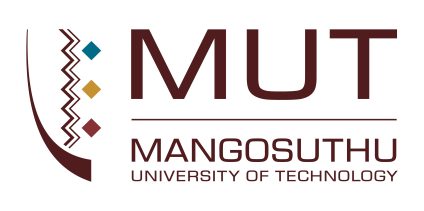
Nomfundo Hlongwa, an Administrative Assistant, and a rising researcher, from the MUT’s Teaching and Learning Development Centre, (TLDC) presented her first scientific conference paper at the Southern African-Nordic Centre (SANORD) Annual Scientific Conference that took place at the University of the Western Cape, on 4 December 2024. Hlongwa’s presentation: “Student and Lecturer Perspectives on the Use of Generative AI in Assessments: An Explorative Study,” delved into the transformative potential and challenges of integrating Generative AI (GenAI) in higher education, particularly within Historically Disadvantaged Institutions (HDIs) in South Africa. The Southern African-Nordic Centre (SANORD) Annual Scientific Conference is a prestigious event that brings together academics, researchers, and professionals from the Southern African and Nordic regions. The conference aims to foster multilateral academic cooperation and address sustainable development goals through joint research, education, and other relevant activities. SANORD conferences are known for their impactful discussions and the developing of actionable strategies to address pressing global issues.
Hlongwa’s study explored the nuanced perceptions, experiences and challenges that shape the adoption and effectiveness of GenAI tools in HDIs. This is particularly relevant given the resource constraints and pedagogical concerns prevalent in these institutions. Hlongwa’s presentation highlighted the dual nature of GenAI in higher education, including enhanced productivity and learning experiences, and ethical challenges related to plagiarism and originality.
Hlongwa also referenced the Technology Acceptance Model (TAM) to frame her study, focusing on perceived usefulness, perceived ease of use, behavioural intention and actual usage of GenAI tools. The quantitative findings of Hlongwa’s study revealed a high level of awareness and familiarity with GenAI tools among students, such as ChatGPT and Gemine. Students reported that these tools enhanced their learning experiences and productivity. However, there were mixed views on the ethical use of GenAI in assessments, with a strong emphasis on the need for clear institutional guidelines. A significant gap was identified in the encouragement and investment in GenAI tools by lecturers and institutions.
The SANORD was a noteworthy contribution to the field of higher education. Her explorative study on the use of GenAI in assessments provided valuable insights into the benefits and challenges of integrating these technologies in HDIs. By addressing the ethical concerns and highlighting the need for institutional support and training, Hlongwa’s research paves a way for more effective and equitable use of GenAI in education. Hlongwa’s presentation was met with enthusiastic applause and admiration from the audience. “As a young researcher, you demonstrated remarkable poise and depth of knowledge, delivering a powerful and insightful presentation on such a huge platform,” commented one of the attendees. Hlongwa’s ability to articulate complex ideas clearly and engagingly impressed many attendees, marking her as a bright future star in research and academia. The audience’s reaction underscored the significance of her work and the promising impact it could have on the future of MUT and higher education.
